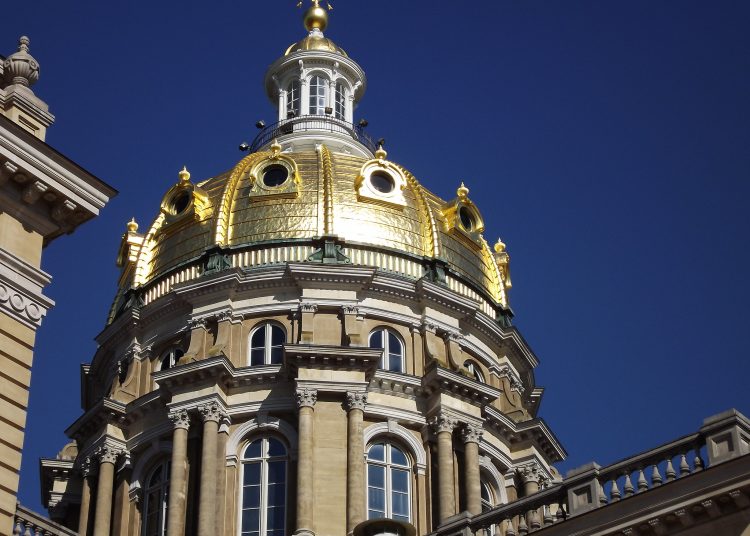DES MOINES, Iowa – The Iowa House of Representatives on Thursday passed SF 2095, Iowa’s version of the Religious Freedom Restoration Act, by a party-line 61 to 33 vote. The Iowa Senate passed the bill last week in a party-line 31 to 16 vote. The bill now heads to Gov. Kim Reynolds’ desk.
State Senator Jason Schultz, R-Schleswig, is the original sponsor of the Senate version of the bill and was the floor manager during debate last week. State Rep. Steve Holt, R-Denison, was the sponsor of the companion House bill and floor managed debate on Thursday.
The bill provides that local, county, or state government action “shall not substantially burden a person’s exercise of religion,” but has to demonstrate the action is furthering a “compelling governmental interest” by using the “least restrictive means” to further the compelling governmental interest.
“Exercise of religion,” in the bill, is defined to mean the practice or observance of religion “that includes, but is not limited to the ability to act or refuse to act in a manner substantially motivated by one’s sincerely held religious belief, whether or not the exercise is compulsory or central to a larger system of religious belief.”
“Substantially burden,” is defined as “any action that directly or indirectly constrains, inhibits, curtails, or denies the exercise of religion of any person or compels any action contrary to a person’s exercise of religion and includes but is not limited to withholding of benefits; assessment of criminal, civil, or administrative penalties; or exclusion from governmental programs or access to governmental facilities.”
“Compelling governmental interest,” in the bill, means “a governmental interest of the highest order that cannot otherwise be achieved without burdening the exercise of religion.”
The bill provides an avenue of judicial review for Iowans who believe their exercise of religion has been “substantially burdened.”
Iowa’s Religious Freedom Restoration Act echoes the federal Religious Freedom Restoration Act of 1993 that passed with bipartisan support and was signed into law by President Bill Clinton.
Reynolds, who is expected to sign the bill, responded to its passage.
“The right of religious freedom is endowed upon us by our creator – not government. Our founders recognized this principle, and today the Iowa House took a step forward to protect it. Twenty-three states around the country, with both Republican and Democrat governors, have passed similar laws. Now, it’s Iowa’s turn,” she said.
Republicans have attempted to pass the bill in the past, stymied by legislators swayed by business groups lined up against the bill. Opposition from business groups has declined as fewer business groups registering opposition this session than in the past.
Read the bill below:
SF2095















